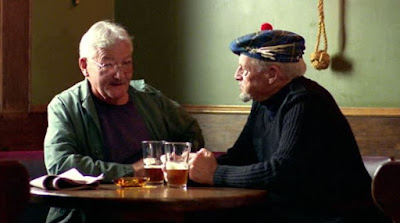WILLIE JACKSON is said to be planning a “media summit” to discuss “the state of the media and how to protect Fourth Estate Journalism”. Not only does the Editor of The Daily Blog, Martyn Bradbury, think this is a good idea, but he has also offered up ten names for Jackson’s consideration. The idea is not a bad one, especially in light of Labour’s success in bringing together a similar collection of experts to discuss the pros and cons of New Zealand signing up to Pillar 2 of AUKUS. It won’t work, however, if there’s only one song-sheet.
The cynics among us will no doubt wonder aloud why Jackson, when he was the Minister of Broadcasting and Communications, did not think to summon a similar colloquium to chart a path forward for the country’s struggling Fourth Estate. It is certainly highly frustrating to see former Labour cabinet ministers calling upon the good and the great to debate the burning issues of the moment in circumstances where they are structurally powerless to give force to their advice.
It would seem that Labour is only keen to listen and discuss policy with New Zealanders when giving practical effect to their ideas is impossible. Once in office, however, the opinions of those Labour deemed worthy of consulting whilst in Opposition rapidly lose their persuasive power. Those masters of deflation, the Public Service are quick to prick their new masters’ policy balloons. Big ideas are prone to creating big consequences – and by no means all of these are favourable. Best to leave the difficult business of devising and implementing policy-change to the professionals.
Few political observers would blame Jackson for telling these “professionals” to bugger-off. After all, they were the ones who spent months and months chewing over Labour’s plans for merging Television New Zealand and Radio New Zealand into a single public broadcasting entity. They were also the ones who oversaw the expenditure of millions of taxpayer dollars on private consultants. Not that this lavish spending on “expert” advice in any way empowered Jackson and his colleagues to offer the voters a succinct and compelling explanation of the merger plan. Perhaps there wasn’t one. Perhaps that’s why, in spite of the vast sums already spent, Chris Hipkins knocked the entire project on the head.
Would the names advanced by The Daily Blog Editor do any better?
Certainly, the academics on Bradbury’s list, Professor Wayne Hope, Dr Joe Atkinson and the key figure in AUT’s “Journalism, Media and Democracy” (JMAD) research team, Dr Merja Myllylathi, have all, over many years, written and spoken out forcefully on what they perceive to be the strengths and weaknesses of the New Zealand news media.
Ironically, the media they wanted is, in many ways, the media they got. In place of the tyrannical editors of yesteryear, advancing without fear or favour the interests of the ruling class; the New Zealand news media of today boasts a troop of enlightened journalists dedicated to expanding social justice. The challenge now, for these wise members of the academy, is to explain why the media they wanted is not what so many of its readers, listeners and viewers wanted.
Perhaps the seasoned journalists on Bradbury’s list of media luminaries could help them? Although it’s possible that John Campbell, Barbara Dreaver, and Mihi Forbes are not entirely sure that being on the list of a radical left-wing blogger is something that will necessarily rebound to their advantage.
Most media observers would hail Dreaver as a journalist of the old school: that is to say, a gutsy television reporter who has always worked tirelessly to uncover the facts, and then been content to let those facts speak for themselves. Campbell and Forbes, by contrast, often come across as fully-paid-up members of Team Truth.
Given that the truth is not always factual, and the facts don’t always align with the truth, the work of journalists like Campbell and Forbes tends to be the sort that raises hackles. As Bradbury’s academics are, perhaps, only now discovering: the Great New Zealand Public is more in love with the tellers of “good yarns”, than they are with the campaigners for the right (or should that be left?) kind of morals.
Few would dispute the wisdom of putting Myles Thomas on a list of New Zealanders seeking to rescue the Fourth Estate. As the spokesperson for Better Public Broadcasting Trust, Thomas brings a refreshingly Alexandrian approach to the Gordin Knot that is New Zealand broadcasting policy.
Anyone who can tell a parliamentary select committee: “TVNZ’s annual budget is roughly $300 million. For the cost of just $5 a month per capita, New Zealand taxpayers could fully fund TVNZ so that it need no longer rely on any advertising at all”, is blessed with a very sharp intellectual sword indeed! Sharper, certainly, than Jackson’s blunt old blade.
It is not very likely that the “Old School” Gavin Ellis, former NZ Herald Editor and university lecturer, and the bombastic Mr Bradbury would have got along very well had Fate thrown them together in the same newsroom or classroom, and yet, Ellis’s name is also there on The Daily Blog editor’s list.
Fiercely loyal to his beleaguered profession, Ellis struggles, like all of us, to square the circle of a Fourth Estate that is crucial to democratic politics, with a Fourth estate that can no longer command the advertising revenue that made people like himself such key players in the game. Ellis knows that social media has already transformed the game of politics, and not necessarily for the better, but he can come up with no better remedy for the desperately ailing “legacy media” than for the state to help it to dip its bucket into the New Media giants’ “rivers of gold”. In the meantime, Ellis, like AUT’s Myllylathi, is at pains to fend off all those critics who cry: “Physician, heal thyself!”
Quite why Matthew Tukaki and Michael Wood appear on the list of media sages is anybody’s guess. Bradbury has friends in Te Ao Māori, and the Labour Party, but even so …
Conspicuous by their absence from Bradbury’s list are the critics of, and challengers to, the Fourth Estate that Jackson is now so keen to rescue. And, right there, is the besetting sin of both the Labour Party and the besieged bastions of broadcasting and the print media – a dread of giving those whom they perceive to be their enemies access to the microphone. Twenty years ago, key players in the Fourth Estate would have recognised that for what it was: cowardice – and dumb cowardice at that.
All the “summits” in the world will avail their organisers nothing, if all they are willing to listen to are their own fears.
It is not very likely that the “Old School” Gavin Ellis, former NZ Herald Editor and university lecturer, and the bombastic Mr Bradbury would have got along very well had Fate thrown them together in the same newsroom or classroom, and yet, Ellis’s name is also there on The Daily Blog editor’s list.
Fiercely loyal to his beleaguered profession, Ellis struggles, like all of us, to square the circle of a Fourth Estate that is crucial to democratic politics, with a Fourth estate that can no longer command the advertising revenue that made people like himself such key players in the game. Ellis knows that social media has already transformed the game of politics, and not necessarily for the better, but he can come up with no better remedy for the desperately ailing “legacy media” than for the state to help it to dip its bucket into the New Media giants’ “rivers of gold”. In the meantime, Ellis, like AUT’s Myllylathi, is at pains to fend off all those critics who cry: “Physician, heal thyself!”
Quite why Matthew Tukaki and Michael Wood appear on the list of media sages is anybody’s guess. Bradbury has friends in Te Ao Māori, and the Labour Party, but even so …
Conspicuous by their absence from Bradbury’s list are the critics of, and challengers to, the Fourth Estate that Jackson is now so keen to rescue. And, right there, is the besetting sin of both the Labour Party and the besieged bastions of broadcasting and the print media – a dread of giving those whom they perceive to be their enemies access to the microphone. Twenty years ago, key players in the Fourth Estate would have recognised that for what it was: cowardice – and dumb cowardice at that.
All the “summits” in the world will avail their organisers nothing, if all they are willing to listen to are their own fears.
This essay was originally posted on the Interest.co.nz website on Monday, 22 April 2024.













